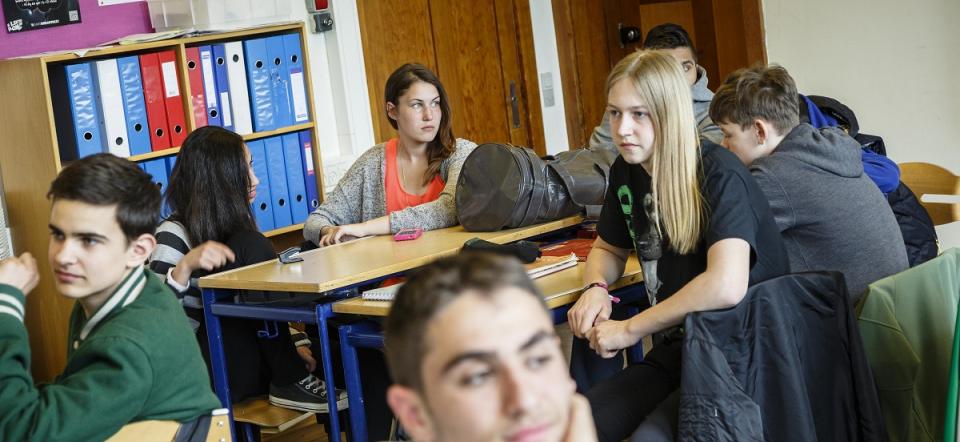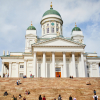Representatives of two NordForsk-funded research projects participated recently in a major seminar in Copenhagen targeted towards future skills. The seminar provided input to the Nordic Council of Ministers on the challenges that leaders in Nordic education need to focus on to develop the competencies required in the Nordic countries of tomorrow.
The purpose of the Nordic seminar on future competencies was to encourage and promote collective learning by discussing and exchanging knowledge, ideas and perspectives on education.
The seminar started off with an inspirational presentation of the OECD’s work with “The Future of Education and Skills 2030” project. Meritxell Fernandez Barrera, Policy Analyst with the OECD Centre for Educational Research and Innovation offered some suggestions regarding the types of knowledge, skills and values that should be taught to children and how to put this into practice.
“Although it is difficult to predict which competencies will be required, we can see that artificial intelligence is giving rise to a greater need for non-routine, creative jobs. We also need new competence to meet the need to develop and apply renewable energy, and to increase our understanding of immigration and integration as well as of digital tools,” she said.
The seminar continued with a number of workshops in which topics such as lifelong learning, sustainable education and digital skills were discussed. The participants included nearly 80 representatives of government ministries, directorates, teacher education, schoolchildren and organisations as well as private actors.
Nordic research in focus
The NordForsk-funded activities Values education in Nordic preschools: Basis of education for tomorrow (ValuEd) and Nordic Centre of Excellence: Justice through education in the Nordic countries (JustEd), presented important findings and recommendations in two of the seminar’s seven workshops. Both of these projects were funded under the first phase of the NordForsk Education for Tomorrow programme. The workshops were attended by representatives of the educational sector.
Project leader Eva Johansson and researcher Monika Röthle explained that the work by researchers in the ValuEd project included studying the institutionalised values education taking place in Nordic preschools. While values are always present, they are often implicit and taken for granted. In addition, in many instances the understanding of values differs widely, as there is often a conflict between the desire for effectiveness on the one hand and for caring and democracy on the other. The researchers concluded by pointing out that individuality as a value is often given greater weight than environmental or societal considerations. Thus, educators and teachers need a professional language they can use to address values. In addition, educator and teacher training programmes should equip future educators to be able to identify, reflect on and discuss values and value conflicts in everyday practice.
Gunilla Holm, project leader, and Fritjof Sahlström, researcher, presented the Nordic Centre of Excellence: Justice through education in the Nordic countries (JustEd). Research activities at the centre include the study and identification of structural and individual inequalities arising in areas such as race, gender, class and language. According to the researchers, school leaders and teacher educators need to understand how existing structures and practices can lead to exclusion and marginalisation. These subjects should also be part of the Nordic curricula in order to give school teachers the knowledge and tools they need to identify, challenge and change norms and structures.
Both workshops were attended by Björk Óttarsdóttir, chair of the Nordic Committee of Senior Officials for Education & Research under the Icelandic Presidency of the Nordic Council of Ministers. She said that the information, experience and input gleaned from the seminar will be incorporated in the ongoing Nordic cooperation on the competencies of tomorrow.
During the closing panel debate, Anders Rusk, General Secretary of the Nordic Teachers’ Council, also highlighted the JustEd centre’s work and findings as among the most important takeaways from the day.
“I think it is important to increase the visibility of NordForsk’s activities in the Nordic discussion on education,” he said.
In the video, Pernille Dalgaard-Duus explains what the Nordic Council of Ministers will be presenting from the seminar to the Committee of Senior Officials for Education and Research (EK-U).




